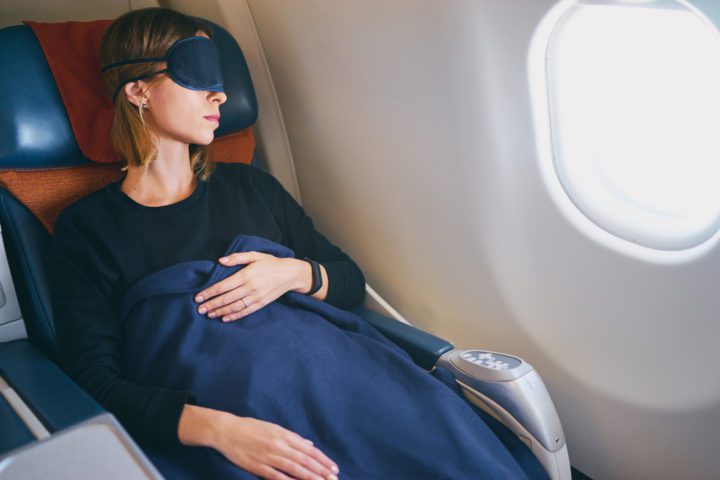How to Beat Jet Lag
Interested in beating jet lag? Want tips to beat jet lag? Jet lag is the common name for the experience of being in the wrong time at the right place. A feature of long-distance air travel, jet lag can affect individuals in a variety of different ways. Mild jet lag may manifest as a slight feeling of tiredness and waking up in the middle of the following night feeling hungry. More severe symptoms can be avoided by taking some preventative measures before you fly. We hope this How to Beat Jet Lag post inspires you.

Images from Depositphotos
How to Beat Jet Lag
In the days leading up to your flight, try to get as much gentle exercise and sleep as possible. Your meal times may be disrupted on the day that you fly, perhaps because of having to begin your journey to the airport in the early hours. You can accommodate this by reducing the size of your meals and increasing their frequency on the day before you travel.
Avoid consuming alcohol in the run-up to your journey, particularly the day before and during the flight itself. Alcohol will quickly dehydrate the body, and on long flights, it is difficult to maintain a good level of hydration even without the hindrance of alcohol in your system. You may also want to limit your intake of tea and coffee for similar reasons.
How to Fight Jet Lag
When you have checked in at the airport and deposited your luggage, you should maintain your gentle exercise regime by walking around the departure lounge area a few times. If you have time to eat, then a light meal is appropriate. If there is no time for you to eat before you board your flight, try to drink some water or fruit juice while you are waiting to board.
Once on the plane, if there is space for you to stretch out, you should make use of it. Being able to put your feet up on the seat next to you could help to prevent blood clots from forming. If you are prone to this condition, you may also want to take a mini aspirin before you fly. Being comfortable on the plane means that you will be more relaxed, and more able to rest or even sleep for a while.

Image from Depositphotos
Take advantage of the drinks that are offered with meals, but again avoid alcohol, tea, and coffee. Even if you do have one or more spare seats next to you, make sure you get up from your seat and move around during the flight. Do some gentle stretching exercises, first by lifting your arms above your head, and then stretching your legs and rotating your ankles.
What to Expect When Traveling on a Luxury Private Jet
Once at your destination, continue walking around as much as possible while in the airport. You may have to stand in line at the border security checkpoint, so try to take a drink with you from the plane if possible. When you leave the airport, try to maintain your regime of small and more frequent meals for the next 24 hours. You should also try to stay awake until mid-evening at least on your first night in the new country. You may wake early, so keep some nuts, fruit or cookies close to the bed to nibble on, plus a glass of water.
Why is jet lag worse coming home?
It seems this is always the case but we also tend to lose hours coming home plus there is the stress of airport travel and knowing that your job is waiting for you on the other end.
How to Beat Jet Lag
Jet lag is an inconvenient start or end to vacation, but is not normally life-threatening. Once you are in the new routine of your host location, usually by the end of the first full day there, your symptoms of jet lag should disappear. These tips to beat jet lag can help no matter where you are visiting. We hope this How to Beat Jet Lag post inspires you. Happy travels!

Luxury Travel: 4 Reasons Why Private Jet Charter is Worth the Splurge
You May Also Like







